Politics
Trump blames Zelenskyy
Published
6 months agoon
By
Ekwutos BlogDonald Trump claims that Volodymyr Zelenskyy and Joe Biden are responsible for the war that broke out between Ukraine and Russia in February 2022.
After two years of conflict with little change on the front lines, the Republican candidate for the U.S. presidential election remains convinced that the Ukrainian leader is at fault, despite maintaining a good relationship with him.
“I think Zelensky is one of the best salesmen I’ve ever seen,” Trump said on Patrick Bet-David’s podcast. “And that doesn’t mean I don’t want to help them, because I feel very bad for those people. But he should have never let this war start,” he added.
The 78-year-old billionaire argued that the issue should have been resolved long before Russia’s invasion of Ukraine took place.
“This should’ve been settled before it started. It would’ve been so easy. If we had a president with half a brain, it would’ve been easy to settle,” he said.
The former president also believes that Joe Biden is the “instigator” of the conflict and has done nothing to end it.
You may like
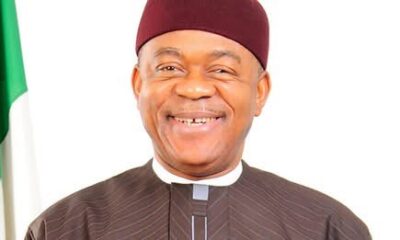

Federal High Court in Abuja has scheduled hearing for May 28 in a motion filed by the Economic and Financial Crimes Commission (EFCC), seeking an order for final forfeiture of N228.4million linked to former Governor of Abia, Theodore Orji.


Security forces foil kidnapping in Katsina, one civilian killed


We are in control of NNPP – Kwankwaso’s loyalists snub court ruling


FAAN ends physical luggage checks at Lagos Airport


IMO DEPUTY SPEAKER, IWUANYANWU DONATES 500 CAPACITY TOWN HALL BUILDING TO NWANGELE COMMUNITY, SALUTES GOV. UZODIMMA FOR ENABLING PROJECTS EXECUTION


Someone gave me 300k to keep for him since August last year, Atanda, Yesterday i received a message from him on WhatsApp that i should pls send 70k to a particular acc0unt he provided and i did just as he instructed and shared him the receipt.
Politics
Federal High Court in Abuja has scheduled hearing for May 28 in a motion filed by the Economic and Financial Crimes Commission (EFCC), seeking an order for final forfeiture of N228.4million linked to former Governor of Abia, Theodore Orji.
Published
16 seconds agoon
April 7, 2025By
Ekwutos Blog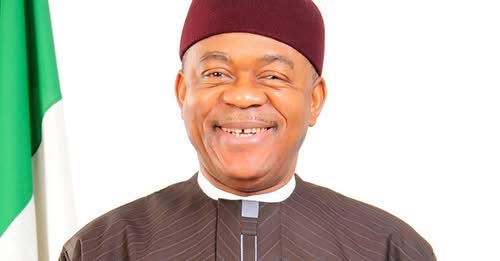
A Federal High Court in Abuja has scheduled hearing for May 28 in a motion filed by the Economic and Financial Crimes Commission (EFCC), seeking an order for final forfeiture of N228.4million linked to former Governor of Abia, Theodore Orji.
Justice Emeka Nwite chose the date on Monday after EFCC’s lawyer, Fadila Yusuf informed the court that her client has complied with an earlier order for publication.
Yusuf said: “I wish to state that we have complied by publishing the report on the commission’s website and in a newspaper, as directed by the court.
She then applied for a date to move the motion on notice for final forfeiture.
Justice Nwite granted her request and and adjourned till May 28 for the hearing of the motion.
In a supporting affidavit, the EFCC claimed that the money is a subject of investigation by its operatives, which was found in the possession of a firm, Effdee Nigeria Ltd.
It said the money was suspected to be proceeds of unlawful activities.
The EFCC added: “Effdee Nigeria Ltd is alleged to have conspired with others to defraud Abia State Government to wit: conspiracy, abuse of office, obtaining money by false pretence, money laundering and diversion of public funds.
“Effdee Nigeria Ltd, in whose possession the monies were found, is reasonably suspected to have conspired with Senator Theodore Ahamefule Orji, the former Governor of Abia State, some officials in the former governor’s administration and his family members.”
It stated that the ex-governor and others are being investigated for the allegations following intelligence report received by the commission against Orji.
According to the EFCC, there is the need to preserve the money pending investigation and/or prosecution.
Politics
We are in control of NNPP – Kwankwaso’s loyalists snub court ruling
Published
1 hour agoon
April 7, 2025By
Ekwutos Blog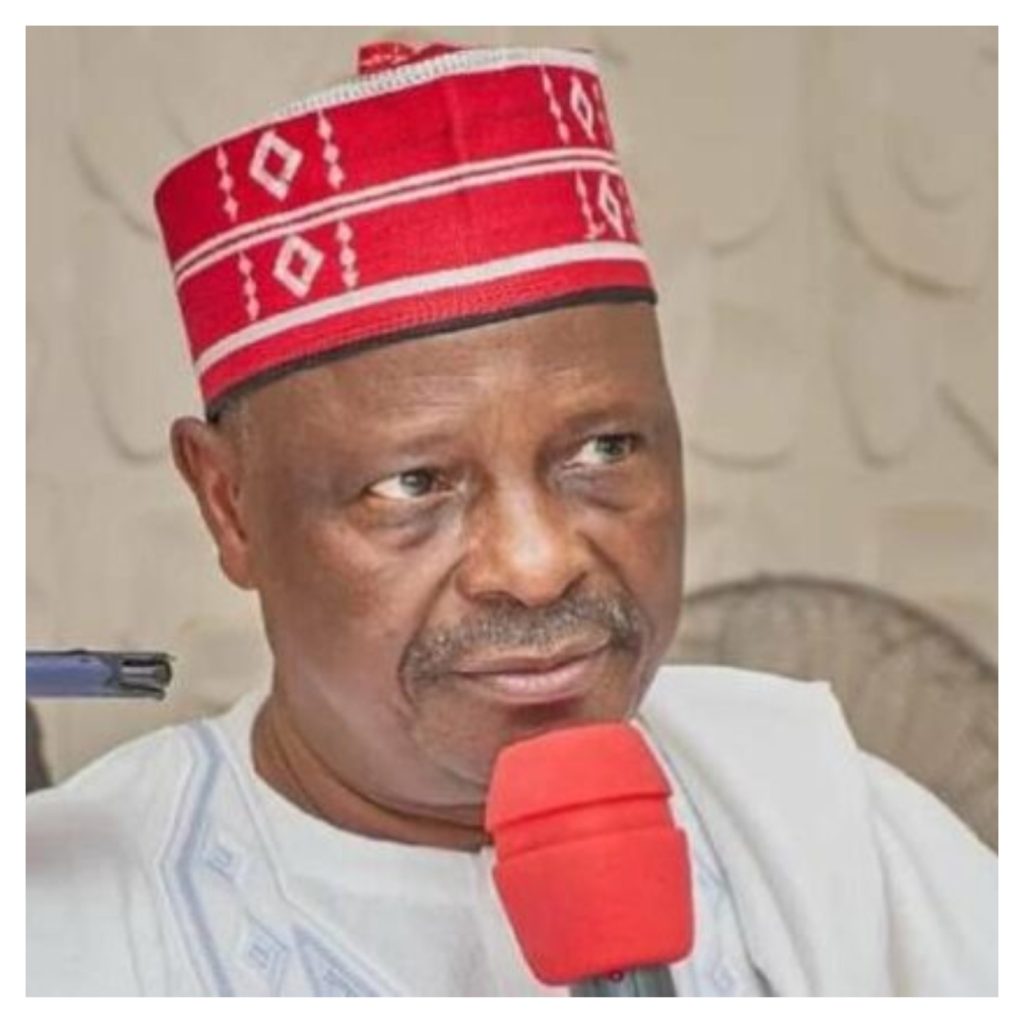
The faction of the New Nigeria People’s Party (NNPP) loyal to former presidential candidate Dr. Rabiu Musa Kwankwaso has reiterated its claim to the party’s leadership despite a court ruling that dismissed its legal challenge.
The group, led by Dr Ajuji Ahmed, reaffirmed that it remains in charge of the NNPP’s operations, arguing that the recent verdict did not affect the existing leadership structure.
The party has been entangled in a leadership tussle since after the 2023 general elections, with two rival camps laying claim to its control, a situation that has triggered internal chaos—particularly in Kano State, where the NNPP holds executive power.
Last week, the Federal Capital Territory High Court struck out a suit filed by the Ajuji-led camp challenging the legitimacy of another faction headed by Chief Boniface Aniebonam and the party’s National Chairman, Dr. Agbo Major.
The plaintiffs, including Dr Ajuji and 20 others, asked the court to stop officials from the opposing camp from convening meetings or organizing party conventions, arguing that they had been expelled.
But in his ruling, Justice M.A. Hassan declined jurisdiction, stating that matters concerning internal party disagreements, including leadership and membership disputes, fall outside the scope of judicial determination.
“The position of the law, as upheld by the Court of Appeal and the Supreme Court, is clear: courts do not adjudicate on matters that fall within the internal affairs of a political party, except in cases relating to the nomination of candidates for elections,” Justice Hassan ruled.
The judgment did not clarify which faction holds legitimate authority, thereby prolonging the party’s leadership crisis.
Aniebonam’s camp claims victory
Members of the Aniebonam-led faction welcomed the court’s decision as validation of their leadership.
Factional Secretary Oginni Olaposi described the verdict as a win for internal party democracy.
“This verdict affirms the legitimacy of the NNPP leadership under Dr. Agbo Major and reestablishes the authority of our Board of Trustees, led by Chief Boniface Aniebonam. It sends a strong message that party matters should be resolved internally,” Olaposi said.
Segun Fiki, legal counsel to the defendants, echoed this stance.
“The court has spoken clearly—this matter is non-justiciable. The legitimate leadership of the NNPP has been affirmed and we now expect the Independent National Electoral Commission (INEC) to formally recognise and engage with the party’s duly elected officials,” he said.
Kwankwaso camp dismisses claims of legitimacy
In a swift response, the Kwankwaso camp warned against misinterpreting the court’s decision.
Barrister Ladipo Johnson, spokesperson for the Ajuji-led faction, accused expelled members of spreading misinformation.
“Quite expectedly, some of the defendants in the suit—who remain expelled from the party—have rushed to misinform Nigerians by twisting the judgement. Contrary to their false claims, there was no pronouncement conferring legitimacy or authority on any so-called Board of Trustees,” Johnson asserted.
He maintained that the expulsion of Boniface Aniebonam, Agbo Major, Olaposi Oginni, and others—previously upheld by a Federal High Court on April 18, 2024—remains in force.
Referencing constitutional and electoral provisions, Johnson emphasized that leadership legitimacy rests with the body recognized by INEC.
“If you check with INEC or visit its portal, you won’t find the names of Boniface Aniebonam, Major Agbo, Olaposi Oginni, or their allies listed as members of the NNPP’s NWC,” he said.
“The judgment in question did not issue any directive to INEC or disturb the current status of the NNPP. The party’s management remains firmly under the leadership of Dr Ajuji Ahmed,” he added.
Politics
IMO DEPUTY SPEAKER, IWUANYANWU DONATES 500 CAPACITY TOWN HALL BUILDING TO NWANGELE COMMUNITY, SALUTES GOV. UZODIMMA FOR ENABLING PROJECTS EXECUTION
Published
1 hour agoon
April 7, 2025By
Ekwutos Blog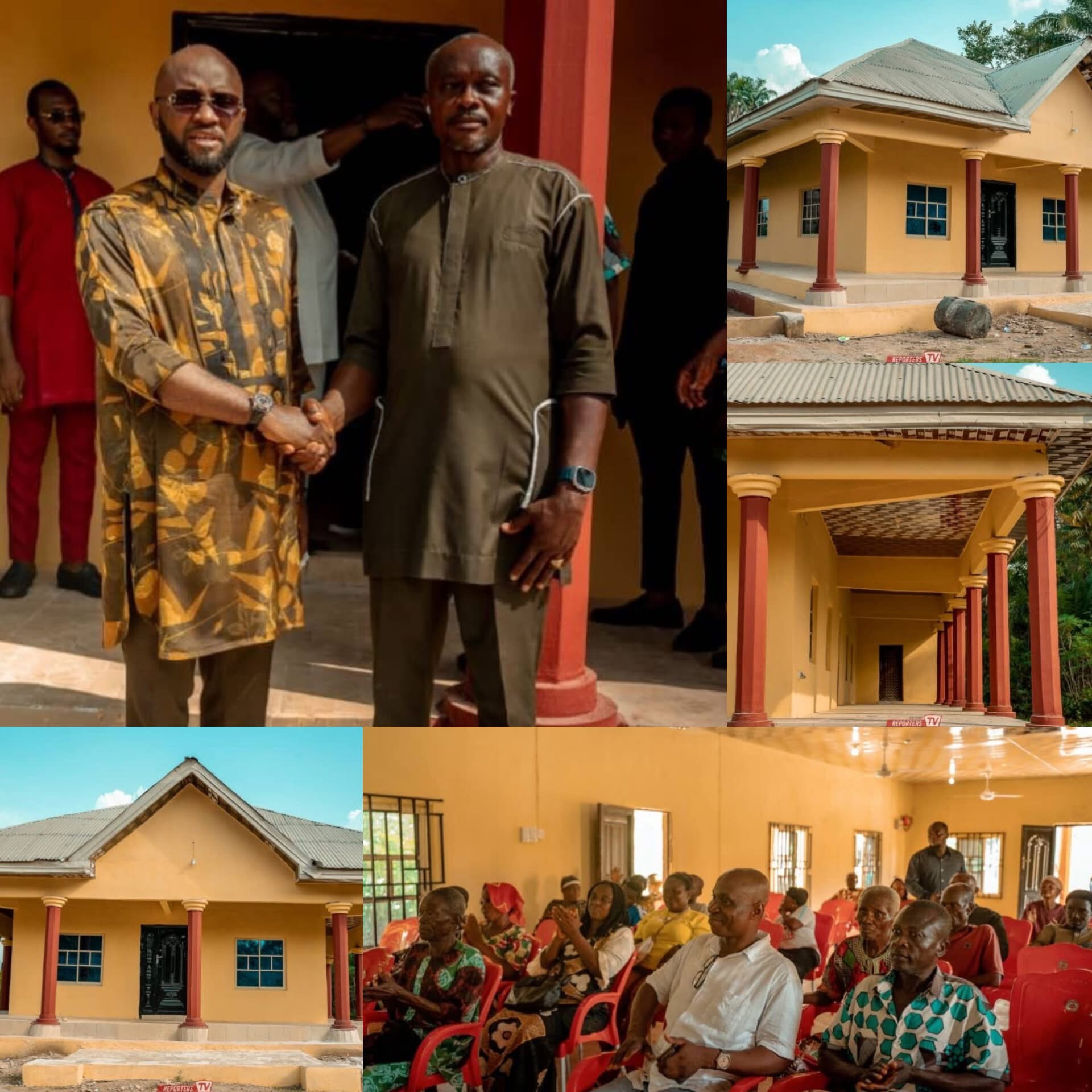
IMO DEPUTY SPEAKER, IWUANYANWU DONATES 500 CAPACITY TOWN HALL BUILDING TO NWANGELE COMMUNITY, SALUTES GOV. UZODIMMA FOR ENABLING PROJECTS EXECUTION
Njoku Macdonald Obinna
Nwangele LGA, Imo State.
As part of his renewed commitment to translate effective representation to tangible dividends of democracy, doubling his efforts toward community development through the spread of people -oriented projects in line with the 3R blueprint of Governor Hope Uzodimma’s Shared Prosperity Administration: Deputy Speaker of the Imo State House of Assembly; the member representing Nwangele Constituency, Rt. Hon. Amara Chyna Iwuanyanwu, Ksc, was on Sunday, April 6, 2025, recorded yet another milestone as he officially donated a 500 capacity state -of-the arts furnished town hall building project to Amuzi village in Dim-na-Nume Isu Community, Nwangele LGA, Imo State, amid commendations by the people.
Speaking during the official handover of the building project to the Chairman of Amuzi village—Mr. Obinna Otuonye, Rt. Hon. Amara Iwuanyanwu, Ksc, accompanied by the Executive Chairman of Nwangele Local Government Area, Hon. Chief Paul Duru, alongside the retinue of his colorful entourage, thanked the leadership and members of the community for their show of love, support and solidarity over the years as he has always won elections in a landslide at their pilling units, reassuring them of his commitment to keep bringing developmental projects not just in Amuzi village as their illustrious son in government, but across the various wards in Nwangele LGA.
Obviously elated for fulfilling his promises of building a befitting town hall project for Amuzi village and also facilitating the construction of over 3km NNDC motorable road project, Iwuanyanwu maintained that community services and development are the hallmarks of his late father, Chief Sir Ignatius Chyna Iwuanyanwu; affirming that he would also have done same if he were still alive today.
In his own words, Rt. Hon. Amara Iwuanyanwu stated; “ I am here today to thank you for your show of love to me since my sojourn in Nwangele polotics. You have always demonstrated your unflinching support to our great party, APC, and our performing govenror, His Excellency, Distinguished Sen. Hope Uzodimma.
During the last election in this polling unit where I recorded a landslide victory for my position and that of the Imo State govenrorship, I saw the despair, neglected, and abandoned of this townhall and promised to build a brand new one for you after the election. Today, it is a promise made and also a promise kept.
Let me quickly use this opportunity to thank our dear governor, His Excellency, Sen. Hope Uzodimma —for always putting Nwangele LGA in his developmental considerations and choice of political appointments. I also wish to thank our illustrious son and apex leader, my political benefactor, High Chief Johnbosco Chukwuma Ozigbu, Ph.D (Ogwuaga of Ogwuaga), for always standing by me and supporting our shared commitment in the development of Nwangele Constituency.
In his note of appreciation to the Deputy Speaker, Amara Iwuanyanwu, National Chairman of Amuzi Village, Mr. Obinna Otuonye, eulogized his performance index for not just being the member representing Nwangele Constituency, but also as a proud son of Amuzi who always brings back home the largesse of government to his people through developmental projects.
According to him, he feels very fulfilled that such befitting townhall building project was executed during his tenure; including the NDDC road construction. Reassuring the commitment of Amuzi people and the entire Nwangele LGA to keep supporting the political aspirations of their son, Amara Iwuanyanwu, who they unanimously prayed God to give him a higher position in due time.
In the same vein, a 75 year old community leader and home-chairman of Amuzi Village, Mr. Meshach Iheanyi Alimnor, poured out his heart in appreciation for the befitting townhall donated to the village by Rt. Hon. Amara Iwuanyanwu even as he prayed God to protect him and his family in all they do as he has continued to make Amuzi people and Ndi Nwangele proud as their state representative.
Majority leader of Nwangele Legislative Council and member representing Dim-na-Nume Isu Ward, Hon. Kelechi Mark- Oparaocha said by always fulfilling his promises to Nwangele people, Rt. Hon. Amara Iwuanyanwu has shown capacity in leadership, sincerity of purpose and political sagacity, a true reflection of his late father’s drive for community development and selfless services to his people, a virtue and legacy which the state lawmaker, Amara Iwuanyanwu, is tenaciously upholding dearly.
Savvy, proactive, politically productive and development- driven, Rt. Hon. Amara Chyna Iwuanyanwu since the inception of office in 2019 has given impressive outing with a proven record of his breathtaking achievements scorecard in youths development programs, practical empowernments, construction of water boreholes, donation of vehicles, free distribution of refrigerators with start-ups capital for small business owners, facilitating NDDC road construction, installation of solar street lights and political appointments in government, as he consistently demonstrates unwavering commitment to the development of the entire Nwangele State Constituency.




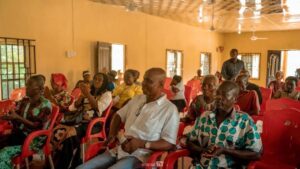
Njoku Macdonald Obinna
Media Consultant|Newspaper Columnist|Public Analyst|PR-Expert

Federal High Court in Abuja has scheduled hearing for May 28 in a motion filed by the Economic and Financial Crimes Commission (EFCC), seeking an order for final forfeiture of N228.4million linked to former Governor of Abia, Theodore Orji.

Security forces foil kidnapping in Katsina, one civilian killed

We are in control of NNPP – Kwankwaso’s loyalists snub court ruling
Trending

 Trending6 months ago
Trending6 months agoNYA demands release of ‘abducted’ Imo chairman, preaches good governance
- Business6 months ago
US court acquits Air Peace boss, slams Mayfield $4000 fine

 Politics6 months ago
Politics6 months agoMexico’s new president causes concern just weeks before the US elections
- Entertainment6 months ago
Bobrisky transferred from Immigration to FCID, spends night behind bars
- Entertainment6 months ago
Bobrisky falls ill in police custody, rushed to hospital

 Politics6 months ago
Politics6 months agoRussia bans imports of agro-products from Kazakhstan after refusal to join BRICS

 Politics6 months ago
Politics6 months agoPutin invites 20 world leaders
- Politics1 year ago
Nigerian Senate passes Bill seeking the establishment of the South East Development Commission.

